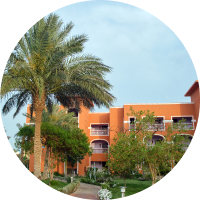Maximum performance in every corner of your hotel: Eptera Resource Management
Eptera Resource Management helps you to rigorously
organise your company's resources. With a single click, it helps
you use your budget more efficiently by introducing the latest
cost reports. Effective cost management, from accurate
accounting to the purchasing process, creates the financial
resources needed for your hotel.
Are you ready to
strengthen your financial resources by saving?

Modules
Human Resources Portal
Users
As an Eptera user, you're not just running a business. You're leading the industry.

All-inclusive Hotels

Chain Hotels

Boutique Hotels

Luxury Hotels

B&B Hotels

Budget Friendly Hotels

Resorts

Motels
Benefits
Asset Management
Prevention of Excess Inventory
Consistent Accounting Management
Centralized Human Resource Management
Increased Employee Engagement and Communication
Automation of Purchasing Processes
Frequently Asked Questions
Are you unable to find an answer to your
question?
Contact
us.
What are the resources of a hotel?
A hotel's resources include a variety of
physical, human and financial elements. Physical resources
are the assets owned by the hotel, such as buildings,
facilities, equipment and the natural environment. Human
resources include the hotel's employees and management team,
including headcount, skills and experience. Financial
resources are the financial resources used to manage the
hotel's income and expenses, including the budget, revenue
streams and financial assets.
Why is it important to manage the hotel's resources properly?
Proper management of a hotel's resources is
critical to the success and sustainability of the hotel.
Effective resource management can increase a hotel's
efficiency and profitability while reducing costs. For
example, efficient use of physical resources can reduce
operating costs while increasing environmental
sustainability by saving energy and water. Effective
management of human resources increases staff motivation,
increases customer satisfaction and improves service
quality. In addition, proper staff planning and training
ensures smooth hotel operations.
Proper management of financial resources ensures the financial liquidity of the hotel, optimises cash flow and evaluates investment opportunities. Budget planning and revenue management increase the hotel's revenue while keeping costs under control. This, in turn, increases the hotel's profitability and positively affects its financial sustainability.
As a result, properly managing a hotel's resources is vital to maintaining competitiveness and ensuring long-term success. Effective resource management optimises hotel operations, ensures sustainability and strengthens the hotel's reputation by increasing customer satisfaction. Therefore, hotel managers and staff should continuously review and improve their resource management strategies.
Proper management of financial resources ensures the financial liquidity of the hotel, optimises cash flow and evaluates investment opportunities. Budget planning and revenue management increase the hotel's revenue while keeping costs under control. This, in turn, increases the hotel's profitability and positively affects its financial sustainability.
As a result, properly managing a hotel's resources is vital to maintaining competitiveness and ensuring long-term success. Effective resource management optimises hotel operations, ensures sustainability and strengthens the hotel's reputation by increasing customer satisfaction. Therefore, hotel managers and staff should continuously review and improve their resource management strategies.
What are the benefits of using software products in human resources management?
Using software products in human resources
management provides many benefits, such as evaluating job
applications, communicating with candidates, scheduling
interviews, and automating the recruitment process, saving
time and effort. HR software also facilitates information
management by storing personnel information in a centralized
database. This ensures that personnel files are kept
organized and facilitates the tracking and evaluation of
staff performance. Software products for human resources
management also optimize personnel management processes.
Digitizing and automating processes such as leave requests,
performance evaluations, and training planning reduces
workload and makes personnel management more efficient.
These software products also provide reporting and
analytical capabilities, allowing HR managers to monitor and
analyze workforce productivity, employee satisfaction, and
other key metrics. This strengthens strategic
decision-making processes and improves the performance of
the organization. Moreover, HR software is equipped with
security measures. This ensures that sensitive personnel
information is securely protected, reducing data security
concerns and ensuring legal compliance. All these benefits
considered, the use of software products in human resource
management increases organizational efficiency, optimizes
personnel management, and strengthens strategic
decision-making processes. Therefore, it is crucial for any
modern business to use HR management technologies to gain
and maintain a competitive advantage.
What are the benefits of using software products in stock monitoring?
Inventory tracking is the recording, tracking,
and managing of materials, products, or services in a
business's inventory. Effective inventory tracking ensures
that businesses have the right amount of materials on hand
and can respond quickly and efficiently to customer demands.
Using software products for inventory tracking offers
numerous benefits, such as automating manual inventory
management processes to reduce manual human errors and
wasted time, tracking and updating inventory levels in
real-time through automated data entry and output, and more.
Software-based inventory tracking systems offer businesses
the opportunity to optimize inventory levels and reduce
costs. The analytical capabilities of these systems allow
users to forecast demand and adjust inventory levels
accordingly. This in turn reduces unnecessary holding costs
and prevents undesirable situations such as stock shortages
and losses. Furthermore, inventory tracking software
strengthens supply chain management. It supports processes
such as monitoring supplier relationships, order management,
and increasing supply chain efficiency. This enables
businesses to optimize their supply processes and increase
their efficiency. Software-based inventory tracking systems
also provide data security and accountability. Sensitive
inventory data is securely protected, unauthorized access is
prevented, and inventory movements are tracked through
traceability. This keeps business data safe while ensuring
mandatory legal compliance. In summary, using software
products for inventory tracking increases business
efficiency, reduces costs, and provides a competitive
advantage. Therefore, it is essential for modern businesses
to use these technologies to strengthen inventory management
and optimize operations.
What are the benefits of using software systems in procurement management?
Purchasing management involves planning,
managing, and controlling the process of purchasing goods
and services for a business. This process involves
identifying business needs, evaluating potential suppliers,
negotiating prices, placing orders, and strengthening the
supply chain. Successful supply management helps businesses
reduce costs, increase efficiency, and gain a competitive
advantage. Using software products for supply management
offers benefits such as automating the process to reduce
manual tasks and increase efficiency. Procurement management
software also streamlines and speeds up the processes from
identifying requirements to invoicing. Software-based
purchasing systems strengthen supplier relationships and
provide opportunities to optimize the supply chain.
Functions such as monitoring supplier performance, analyzing
supplier data, and managing supplier relationships enable
businesses to strengthen their supply chains. In addition,
software-based supply management solutions provide
analytical capabilities to support managerial
decision-making. Monitoring supply trends, comparing
supplier prices, and optimizing costs help managers make
more targeted decisions. Purchasing management software
products also make the purchasing process traceable and
auditable. Tracking invoices, payment processes, stock
levels, and purchasing performance enables businesses to
manage the purchasing process more effectively. As a result,
using software products designed for procurement management
increases business efficiency, reduces costs, and provides a
competitive advantage. Therefore, modern businesses are
recommended to use these technologies to strengthen their
procurement processes and optimize their operations.
What are the benefits of using software solutions in asset management?
Asset management involves effectively
monitoring, recording, and managing the fixed assets
(assets) of a business. These assets are usually designed
for long-term use and are crucial to supporting the
operations of the business. The asset management process
involves creating an inventory of assets, locating,
maintaining, repairing, evaluating, and disposing of those
that can no longer be used. Businesses need asset management
systems to keep a complete list of their fixed assets and
prevent losses. The use of software products in asset
management extends the useful life of business assets by
ensuring timely maintenance and repairs. It also facilitates
financial processes such as valuation and depreciation
tracking, meets reporting requirements, and helps businesses
comply with legal regulations. Another benefit of using
software products in asset management is their analytical
capabilities. These software solutions enable managers to
monitor, analyze, and improve asset performance as needed.
This allows managers to utilize business assets more
efficiently and improve overall business performance.